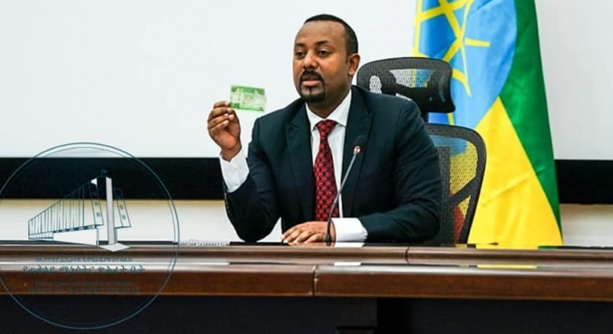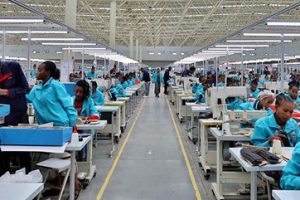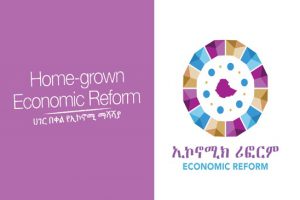
Starting from the day that the reformist government led by Prime Minister Abiy Ahmed (PhD) received its responsibility to lead the never colonized country, Ethiopia, different measures have been undertaken in order to boom the national economy. Apart from the commitment of the government to bring economic growth, the people of Ethiopia as well is playing pivotal role in supporting the government’s ambitious plan to be implemented.
“Despite the tremendous challenges Ethiopia has been faced with in the domestic political environment, as well as the unprecedented effects of COVID-19, I shared at today’s G20 Compact with Africa that the government is committed to continue with its economic reforms.
The achievements in the past years are indications of our commitment and potential. Ethiopia is committed to continue to implement macro-financial and investment climate reforms to improve the framework for private investment in the country,” the Premier tweeted.
The government has also started to change the gear to shift policy that has helped the economy to recover. Accordingly, through the work done to improve the export business the country has earned 3.64 billion USD which is of paramount importance to support the national economy.
According to Melaku Alebel, Minister of Trade and Industry, the fact that 3.64 billion USD was registered in the last Ethiopian fiscal year is an indication that better results can be achieved through coordination and leadership commitment.
Melaku also said that the government has been able to realize the significant growth in export performance over the past two years. Adding, he said that the change is aimed at formulating indigenous economic reforms, focusing on agriculture, industry, tourism and mining, as well as moving from demand-led economy to supply-led economic development.
“Expanding Ethiopia’s export trade and increasing the amount of foreign exchange earned from the sector is crucial for the country’s healthy economic growth. At this crucial time when Ethiopian mothers bless their children and mobilize for the survival of their country, we must fight the forces that are harming the people who are making market fraud,” he stated.
Unveiling new bank note during the last fiscal year was also the root causes for the achiever performance. The Ethiopian government has unveiled a set of new bank notes and a two hundred new note as a part of its efforts to curb cash hoarding, illegal trade activities, and illicit financial flows in an already struggling economy.
It is to be recalled that Ethiopia has improved design and security features on new Birr notes for denominations of 10, 50 and 100 and denominated a new 200 currency note by the concluded fiscal year. According to Prime Minister Abiy Ahmed, the new notes will curb financing of illegal activities, corruption and contraband. Ethiopia has spent more than 97 million USD to print the new currency.
Apart from this, the National Bank of Ethiopia (NBE) has ordered commercial banks to suspend all collateral-based loans, an unexpected measure in order to stimulate the economic inflation across the country. Economists and officials further agreed that the decision was made to curtail economic sabotage.
Underscoring that the country has earned 682.2 million USD from mining sector in the last year, Mining and Petroleum Minister Takele Uma said this is the largest foreign exchange earnings in recent years compared to the previous years’ performances. He also illustrated that Ethiopia earned 207 million USD in the 2019/20 fiscal year, only about 1/3 of the reported year.
“For this new Ethiopian fiscal year, we have also planned to do better in the sector. We do not get rest without achieving our laurels! Our performance observed by last year is a testament to the fact that we can achieve our goals and that our mining resources will be the backbone of our economy,” the Minister said.
Believing that the mining sector is the dawn of Ethiopia’s economic growth, the practitioners of the sector are moving forward. The ministry is also focusing on other mineral resources in addition to ‘gold’ which is the backbone of the country’s major foreign currency earners and of course the result is being seen.
As an indication of this, the Ministry has earned better foreign exchange from the jewelry minerals over the last two months (July and August) that has shown 29.4 percent increment when compared to the same period performance of the last year, Takele added.
“One of the reasons for this achievement was the lifting of restrictions on the production and sale of jewelry. The work we are undertaking on jewelry mining will continue and be accompanied by results,” Takel Uma said.
As part of the economic reform, the Ethiopian government has also opened the door to partially privatization of Ethio-telecom Company. Accordingly, Safaricom Consortium won Ethiopia License Bid of 850 million USD. And the company will be operational be the current Ethiopian new fiscal year.
Meanwhile, in an effort to curb and control the rising inflation and enhance the purchasing capacity of the public, the government recently removed the tax levied on basic commodities such as wheat, edible oil, sugar and rice. The Value Added Tax (VAT) that has been levied on items such as pasta, macaroni and eggs is also exempted.
Eyob Tekalegn (PhD), State Minister of Finance, announced that food items have been exempted from tax and VAT. According to the study conducted by the Ministry, the government will lose billions of Birr due to the implementation of such impactful decisions, Eyob underscored.
Since tax exemptions alone cannot alleviate the inflation in the country, the government has already purchased sugar to cover the annual demand and 53 million liters of edible oil to be distributed for the public at a fair price, Eyob highlighted.
He said the efforts made by enacting various policies to implement the economic reform during the current budget year are encouraging adding that efforts to stabilize the macro-economy and sustain its economic growth have been promising.
According to him, during the last fiscal year, Ethiopia has also earned 3.9 billion USD in the form of loan and support from its different development partners.
Coffee export was also among the efforts achieved by the government of Ethiopia. According to the information obtained from the Ethiopian Coffee and Tea Authority, Ethiopia has earned 907 million USD from coffee exports during the last fiscal year. And it was also stated that the achievement is the most remarkable and historical compared with the last performances made by the coffee sector.
The report further pointed out that the reform activities made by the authority in collaboration with the government and all stakeholders have helped the authority to reach on this success. Accordingly, alleviating hassles which have been seen on the supply process, increasing the quality and quantity of coffee, increasing the volume of coffee from rank one to three were among the activities taken by the authority.
Coupled with the above success, numerous projects have turned around Ethiopia’s economic decline, particularly in the city of Addis Ababa. Currently, the country forms the heart of Africa’s economic evolution due to high demands in the construction sub-sectors. The wave of construction in Addis Ababa has spilled into other Ethiopian cities, causing investors to take serious measures in expanding their business in the country.

The Sheger Bread Factory, Entoto Park, Legehar-Mesqel square projects are among the projects that laid their fingerprint in the national economic growth. These projects have been completed in a short period of time after the reform. Yet, they have created enormous job opportunities for youths, women and law income citizens living in the city, Adanech Abebie, Deputy Mayor of Addis Ababa stated.
Similarly, different foreign and domestic investors are engaging in these projects. Henceforth, they are also used as the source of economy for the country in general, she mentioned. The grand Meskel Square-Addis Ababa City Hall project further built at a cost of 2.6 billion Birr is a part of the Beautifying Sheger initiative.
The project has equipped the gathering place with integrated facilities, including an underground parking space that accommodates 1,400 vehicles. And it is also essential in creating vast job opportunity for the city residents, she added.
According to the higher officials, despite the numerous challenges like coronavirus pandemic, global economic slowdown, the locust invasion as well as the war that the country faces in its the northern part, the country’s economy has stayed on the course. As an illustration, the government had spent more than 100 billion Birr (2.3 billion USD) on rehabilitation and food aid for the region, equivalent to 20 percent of this year’s national budget in few months, it was learnt.
BY HIZKEL HAILU
The Ethiopian Herald 11 September 2021





